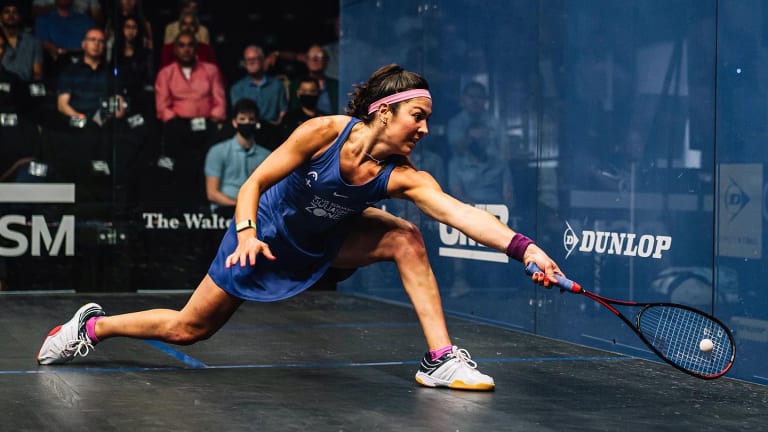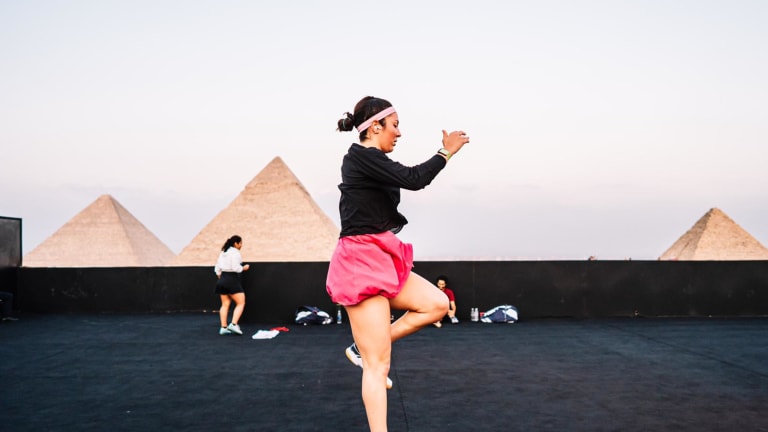“Hugely, hugely destructive,” SquashTV commentator Joey Barrington said as he watched Amanda Sobhy put the finishing touches on the biggest title of her career, at the Oracle Netsuite Open in San Francisco’s Embarcadero Plaza on Monday night.
By that point, as he watched Sobhy steamroll her way to a 33-minute final-round win, Barrington seemed to have exhausted his supply of superlatives.
“That’s powerful, very very powerful,” he said after a Sobhy forehand smash ricocheted around the back corner of the glass-walled court for a winner.
“This is the most efficient title of her career,” he said as Sobhy brought the rallies to ever-quicker conclusions in the third and final game.
“It’s ruthless,” Barrington finally concluded, as Sobhy screamed in celebration after winning the last point, and her first Professional Squash Association (PSA) Gold-level event.
It was hard to argue with his word choices. Destruction was the order of the day, and the week, for Sobhy in San Francisco. Seeded second, she beat two fellow Top 10 opponents and didn’t drop a set; her first-round match took all of nine minutes. This was the 28-year-old Long Island native’s 18th career PSA title, but it was her first of 2021, and it came at an opportune moment. This week she’ll return to the city where she lives and trains, Philadelphia, for one of squash’s major events, the U.S. Open.
“It’s going to be interesting because this really takes the home tournament to an all-new level,” Sobhy said on Monday. “I live about a 15-minute walk away, and I’ve never actually played a tournament where I live, so it’s exciting.”

